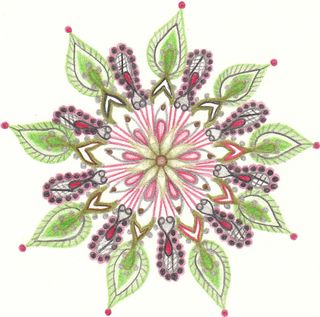Intuition
Which Therapy Will Really Help Me?
CBT, psychotherapy, science, intuition and finding the care that fits.
Posted February 16, 2019
I attended a lecture with a renowned expert on psychotherapy who purported that psychotherapy is undervalued because it is hard to study and costly for institutions. He suggested that Cognitive Behavioral Therapy (CBT) is easier to study, takes less time and is less expensive, so it is favored. The research he shared showed influential but apparently flawed works (below) that compared the effectiveness of these treatments. CBT appeared superior but, he pointed out, it was because inexperienced clinicians with little training performed the psychotherapy in the study.
CBT is best for some and Psychodynamic Psychotherapy is best for others. Acceptance and Commitment Therapy works for this person. Motivational Interviewing will serve that person. Sometimes the best method is a mix. Of course, it is about what the person needs and not what the clinician cottons to or is comfortable with. That which saves the institution money or meets criteria for an elegant study and a publication may not do much for people but might be easy to rationalize. Best Practice implies that the treatment is customized, effective, safe, ethical, humanistic, justified by evidence and takes good care of the person with the concern.
We place much stock in science and evidenced-based medicine, but conflicting studies and skewed processes exist. There are so many peer reviewed journals to consider and studies to sift through. So how do we make decisions? How do we tell what’s best? How can we tell good science from bad science?
Instinct, gut-feel or intuition of seasoned clinicians who practiced relationship-based care or interpersonal intelligence used to be considered valuable. In an era characterized by a “tyranny of metadata,” re-integration of inter-personal intelligence might be helpful, according to experts in the New England Journal of Medicine. Experience creates wisdom. Deep integration of knowledge over time hones unconscious thinking. The feelings, sensations, affects and discomforts in the interpersonal exchange offer clues to what matters. So, in a sense, intuition is sensible.
Psychotherapy is not a manual based process with a formula but is based on a human relationship that includes intuition as well as rigorous training in the vicissitudes of the mind. It involves spontaneous exchange. It leads to insight. Insight is freeing. Psychotherapy, like any other human interaction heightens awareness by sensing, seeing, responding and shifting in the moment. Interpersonal depth can take someone to a higher place. (Here is a podcast about Saving Talk Therapy: https://www.wbur.org/onpoint/2018/01/21/talk-therapy)
The psychotherapy expert in our lecture explained that the reason manual based therapies are effective is, in part, because talented therapists know how to integrate protocol with person. They use psychotherapeutic technique and make an art of the process by using visceral cues- body language, pauses, sighs, grimaces, what's not said, in addition to “data.” It’s not just about the content but how it is delivered. As with anything, when you know the basics, your improvisations are good. There is a whole body of work on using the “self as a tool.”
William James, the oft quoted psychologist and philosopher said, “Our greatest weapon against stress is the ability to choose one thought over the other.” Shakespeare said, “Nothing is good or bad but thinking makes it so.” The book by Dr. Judith Beck (daughter of Dr. Aaron Beck, father of CBT) captures the creativity within CBT.

Sometimes people truly need to learn the practice of altering their thoughts to alter their mood. Say a mantra, change the narrative, create a distraction, shift the perspective, claim a more positive and justified view. CBT can really help with that.
Some people need the corrective emotional experience provided by a deep and ongoing relationship, attachment, self-expression and several sessions, to sort through the layers. They just do. For them, nothing else will work.
Chang, Stacey, Lee, Thomas, Beyond Evidenced-Based Medicine, N Engl J Med. 2018 Nov 22;379(21):1983-1985. doi: 10.1056/NEJMp1806984.
Cuijpers, P., Smit, F., Bohlmeijer, E., Hollon, S. D., & Andersson, G. (2010). Efficacy of cognitive– behavioural therapy and other psychological treatments for adult depression: Meta-analytic study of publication bias. British Journal of Psychiatry, 196, 173–178.
Wampold, B.E., Budge, S.L., Laska, K.M., Del Re, A.C., Baardseth, T.P., Fluckiger, C., Minami, T., Kivlighan, D.M., Gunn , W. (2011) Evidence-based treatments for depression and anxiety versus treatment-as-usual: A meta-analysis of direct comparisons. Clinical Psychology Review, 31, 1304–1312.
Yang Sun, Thomas,M.D , To be Guided by Instinct,n engl j med 379;11 nejm.org September 13, 2018


